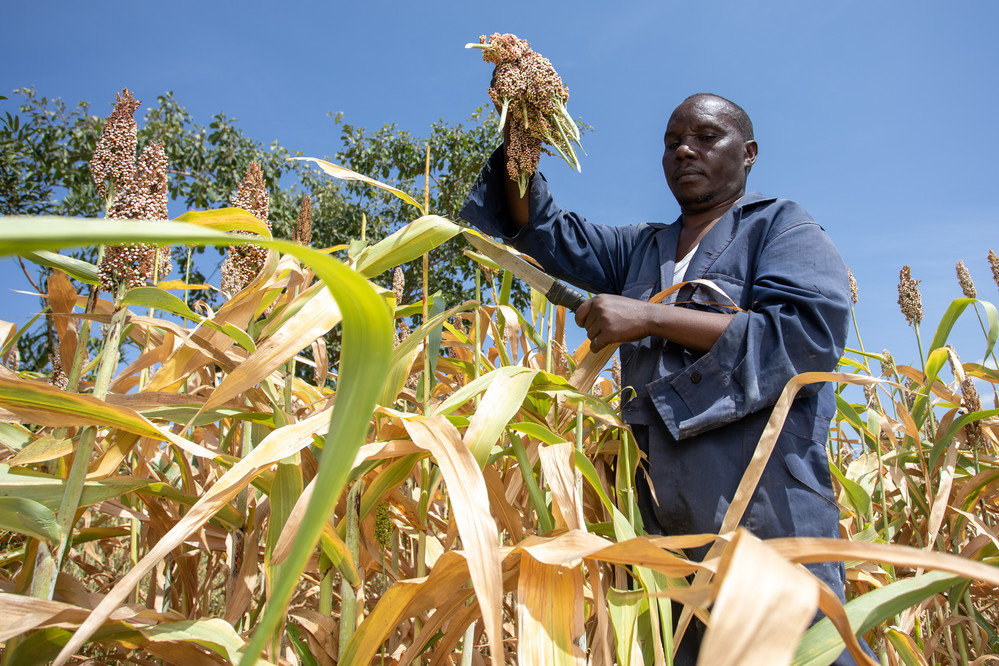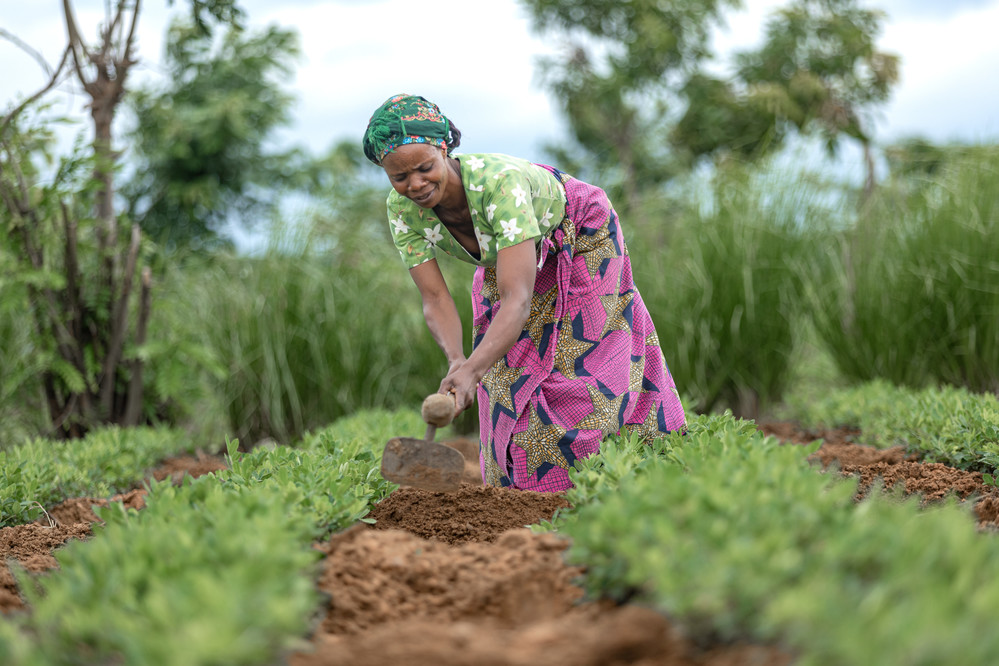Perspectives is a series that highlights emerging issues in the area of agri-SME and smallholder finance as described by practitioners and thought leaders from within and outside the SAFIN network. In this interview, Henri van der Land, Co-founder and Director of SME Impact Fund, shares lessons from the company’s twenty-year history in lending to rural-based agricultural SMEs in Tanzania and four key ingredients to achieving scale in financing the missing middle.

Photo: IFAD/ Isaiah Muthui
Please tell us about the SME Impact Fund and how it finances agricultural SMEs.
SME Impact Fund, or SIF for short, is unique in many ways because it mainly finances rural-based agricultural SMEs that operate in loose food value chains in Tanzania. Since SIF was started in July 2013, we have disbursed over US$15 million in small loans of about US$80,000 each to missing middle agricultural enterprises. Our work so far has enabled the creation of 3,000 jobs in these enterprises and impacted the livelihoods of 20,000 smallholder farmers as well as their communities. In recent years, we have also started approving loans for first-time borrowers below US$42,000 by taking advantage of incentives and first-loss coverage offered by initiatives like Aceli Africa. Building on our experience in Tanzania, we plan to scale up to Uganda and Kenya, still targeting the agri-SME segment that remains critically underserved.
When we go to the field looking for investment-ready agricultural SMEs, we don’t encounter many financial institutions targeting this group. It is simply too costly or too risky for them. We have maintained momentum here by building an investment pipeline cost-effectively and applying our eligibility criteria with some flexibility to lower the entry barrier for agri-SMEs that show great potential. This mainly applies to minimum financial requirements, verifiable turnover and collateral.
How does the SME Impact Fund overcome the common challenges in financing missing middle enterprises?
Financial institutions are faced with many challenges when lending to the missing middle, particularly those in more volatile, loose agricultural value chains. Some external factors like wars, climate shocks and the business environment are often beyond our control. We mainly address these by risk mitigation strategies. Our team influences the internal factors that can affect the ability of an agricultural SME to repay a loan, such as diversion of funds or poor management practices. We aim first to ensure that the agri-SME is investment-ready, not only in terms of documentation and eligibility criteria but also in mind set. We also use partial disbursements and monitor the business’ cash flow before releasing loan instalments. Over the years, we have maintained close contact with our clients throughout the loan cycle, resulting in repeat clients of about 70% of our portfolio.
Breaking even and scaling models to finance agricultural SMEs is an obstacle for many in the sector. What are some of the key ingredients to achieving scale?
Four key ingredients for scaling agri-SME lending come to mind. First, we have found the peer exchange approach to be a very cost-effective war to generate our pipeline of investible agricultural SMEs. More needs to be done in this area, and we are currently piloting an agent model within our geographic clusters. This is someone who is known and trusted by agribusiness owners, can mobilize prospects and undertake other activities in the loan origination process for a commission.
Business Development Services are the second ingredient, and this aims at addressing the internal factors that hinder agri-SME growth. Limited business growth affects the financial sustainability of SMEs and their ability to repay loans. It also has an impact on lenders, whose economics may not hold in cases where the average loan amount remains low despite repeat clients. Investment funds spend about the same time and effort to disburse a smaller or a bigger loan, so growing agricultural SMEs within their portfolio is key. Over almost 20 years, we have seen that one-on-one mentoring or coaching that focuses on behavioural change and mind set shifts (among other soft skills) is most effective. Unfortunately, this is so costly that SMEs and donors are reluctant to pay for it.
Third, efficient loan origination systems and automated activities can significantly support scaling up lending to agri-SMEs. Some investment funds undertake activities like intake, benchmarking or repayment reminders manually. Improved systems that align with the lender’s financial management systems, automate services and deliver high-quality management reports can significantly support the scale-up of funds like SIF.
The final ingredient is around de-risking and incentivizing lending to the underserved. Aceli Africa is one example of an effective facility that does this. SIF used their incentives to cover loan origination costs, support our scaling up and improve our break-event point.
Please share some lessons from SIF’s experience for other lenders targeting the underserved.
The lessons learned over the last 19 years are vast and diverse, but I would like to share some lessons related to recovering loans. It’s important to distinguish between borrowers who deliberately and willingly do not repay loans and those who do not repay due to mismanagement or factors beyond their control. The former should face necessary legal measures while a constructive solution such as restructuring may be more appropriate for the latter. While SIF does not shy away from legal actions such as auctions, especially for defaulters at will, we remain supportive by enabling the borrower to sell his/her own collateral rather than take ‘forced market value’ through an auction.
Restructuring should never be a bonus for not repaying a loan, but given the seasonal nature of agriculture, it is a viable means to recover loans in the future. Lenders should try to recover loans from the sale of non-productive assets, rather than from assets like title deeds. This approach provides a window for the borrower to relaunch their business in the future. Finally, we have seen that third-party guarantees from peers, family members or business associates are remarkably effective in Tanzania to persuade the borrower to repay, even if the guarantee is not backed by tangible collateral from a third party.
Henri van der Land, Co-founder and Director of SME Impact Fund, Match Maker Associates and Match Maker Fund Management

Henri has over 35 years of experience in private sector development and fund management, mainly targeting SMEs in the agriculture sector. His main professional focus is the development and application of best practises in private sector development services, particularly sub sector studies and value chain development, as well as the implementation of innovative financial services.

